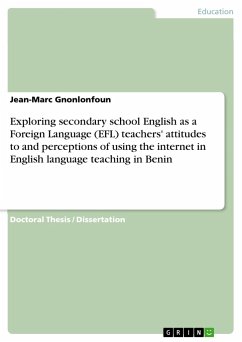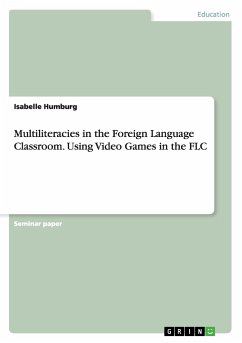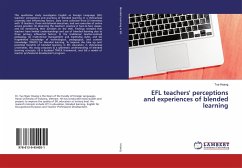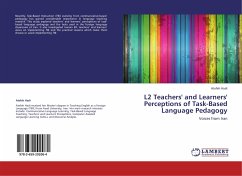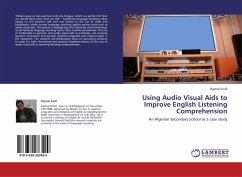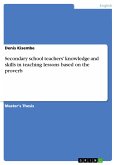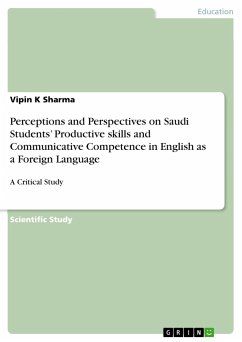Doctoral Thesis / Dissertation from the year 2014 in the subject Didactics - English - Pedagogy, Literature Studies, grade: -, Université d'Abomey-Calavi, course: Didactics - EFL, language: English, abstract: As one of the technologies of information and communication, the Internet has been,for some years now, the topic of much interest within the educational community. Ways ofusing the Internet as a medium to deliver instructional materials and to access digitallibraries are reshaping education in general and language instruction in particular. Thisexploratory study has attempted to find out the attitudes and perceptions of secondaryschool English as a Foreign Language (EFL) teachers towards the use of the internet inEnglish Teaching in Benin. It has also set out to investigate the possible impediments forsuch integration in the classrooms. In this line, a review of the existing literature related toComputer-Assisted Language Learning and the internet uses and benefits for Education hasbeen presented. Both quantitative and qualitative methods have been employed to collectdata on the field. A questionnaire was distributed to 500 secondary school EFL teachersduring the 2012-2013 school year. The return rate of this questionnaire was 99% (N=495).This stage was followed by interviews with a random sample of 40 teachers. The resultsfrom both the quantitative and qualitative instruments of research indicated that theparticipants had rarely used the Internet, particularly for instructional purposes. Indeed, theyreported more use of the Internet for personal than for instructional purposes. Participantshad high levels of Internet use in mainstream Internet services such as e-mail and the Web.While they had positive perceptions of the use of the Internet as a pedagogical tool, theyhad relatively limited levels of access to and expertise with computers and the Internet.Positive correlations existed between teachers' level of use of the Internet and fiveindependentvariables, including computer and Internet expertise, place of access to theInternet, perceptions of the Internet, computer experience, and Internet experience. Multipleregression analysis indicated that only expertise, place of access, and Internet experiencehad a significant predictive value of teachers' use of the Internet. The results also indicatedthat 39% of the variance in Internet use was explained by the independent variablesincluded in this study. To increase Internet use, secondary school EFL teachers need to begiven more Internet training. In-service training needs to be a top priority, with a primaryfocus on using the Internet as a tool for teaching and learning. [...]

